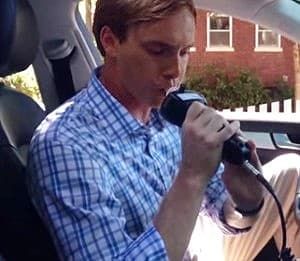 The trend for states to adopt ignition interlocks for drunk driving offenses is on the rise. An ignition interlock, or car breathalyzer, prevents a vehicle from starting if the driver has been drinking. Currently 29 states mandate the devices for all such offenses, including first offenses. What was once thought to be a remedy for hard-core repeat offenders is now known to be a sensible measure to ensure that all offenders are sober behind the wheel. The enforced interlock period leads to a reduction in DUI recidivism.
The trend for states to adopt ignition interlocks for drunk driving offenses is on the rise. An ignition interlock, or car breathalyzer, prevents a vehicle from starting if the driver has been drinking. Currently 29 states mandate the devices for all such offenses, including first offenses. What was once thought to be a remedy for hard-core repeat offenders is now known to be a sensible measure to ensure that all offenders are sober behind the wheel. The enforced interlock period leads to a reduction in DUI recidivism.
But some people don’t realize that there are more benefits to the devices beyond the obvious one of halting a drunk driver. The National Highway Traffic Safety Administration has outlined the benefits of ignition interlocks for offending drivers, other motorists and society as a whole:
- Offenders Keeps Their Legal Driving Status. Because offenders can still drive, they can maintain their jobs, get their kids to school, drive to counseling or substance abuse treatment sessions. In areas where public transportation is not abundant, this can mean the difference between success and failure of the program.
- Families Approve of Ignition Interlocks. Not surprisingly, a UK study found that the families of offenders who use the devices approved of them. The interlocks reassured them that their loved one was safe on the road. The respondents also reported that the devices had a positive effect on the offender’s drinking habits.
- Interlocks Help Predict Future Behavior. As it turns out, how an offender handles his or her ignition interlock breath tests is a good predictor of whether or not that person will be back in court. Those who did well with the interlock generally did well afterwards, and those who consistently failed tests had higher rates of recidivism. This means that the data from ignition interlocks, which is downloaded and reviewed by authorities regularly, is useful in determining whether full driving privileges should be restored. This practice, called compliance-based removal, is in place in a number of states.
- Interlocks are Cost-Effective. Generally an interlock costs $2 to $3 per day, less than a drink at a bar. The cost is borne by the offender, not the state. Compared to incarceration, ignition interlocks are a bargain, and one with better results overall.
Of course, one of the main benefits of ignition interlocks will always be their ability to keep a drunk driver off the road. But legislators should not lose sight of the other advantages that the devices bring to the table, advantages which lead to safer roads and a second chance at a sober and responsible life.
